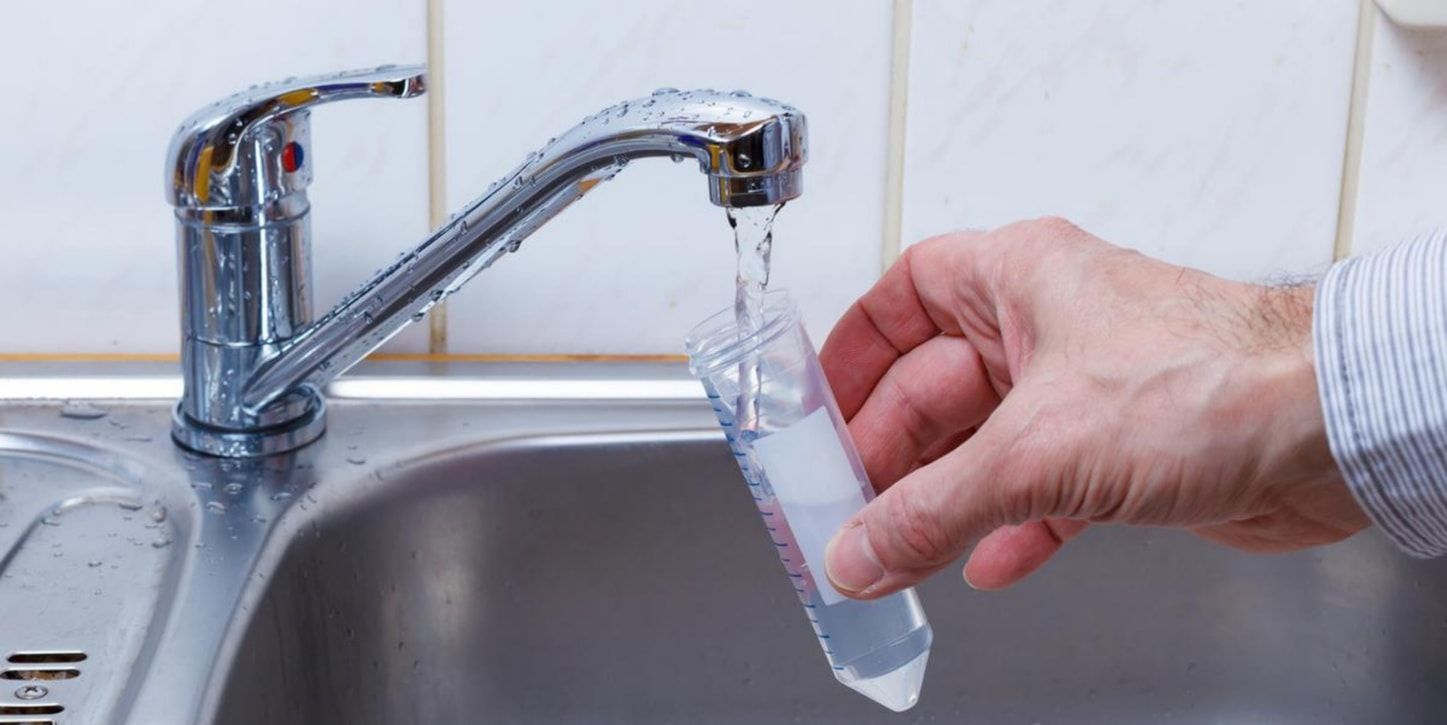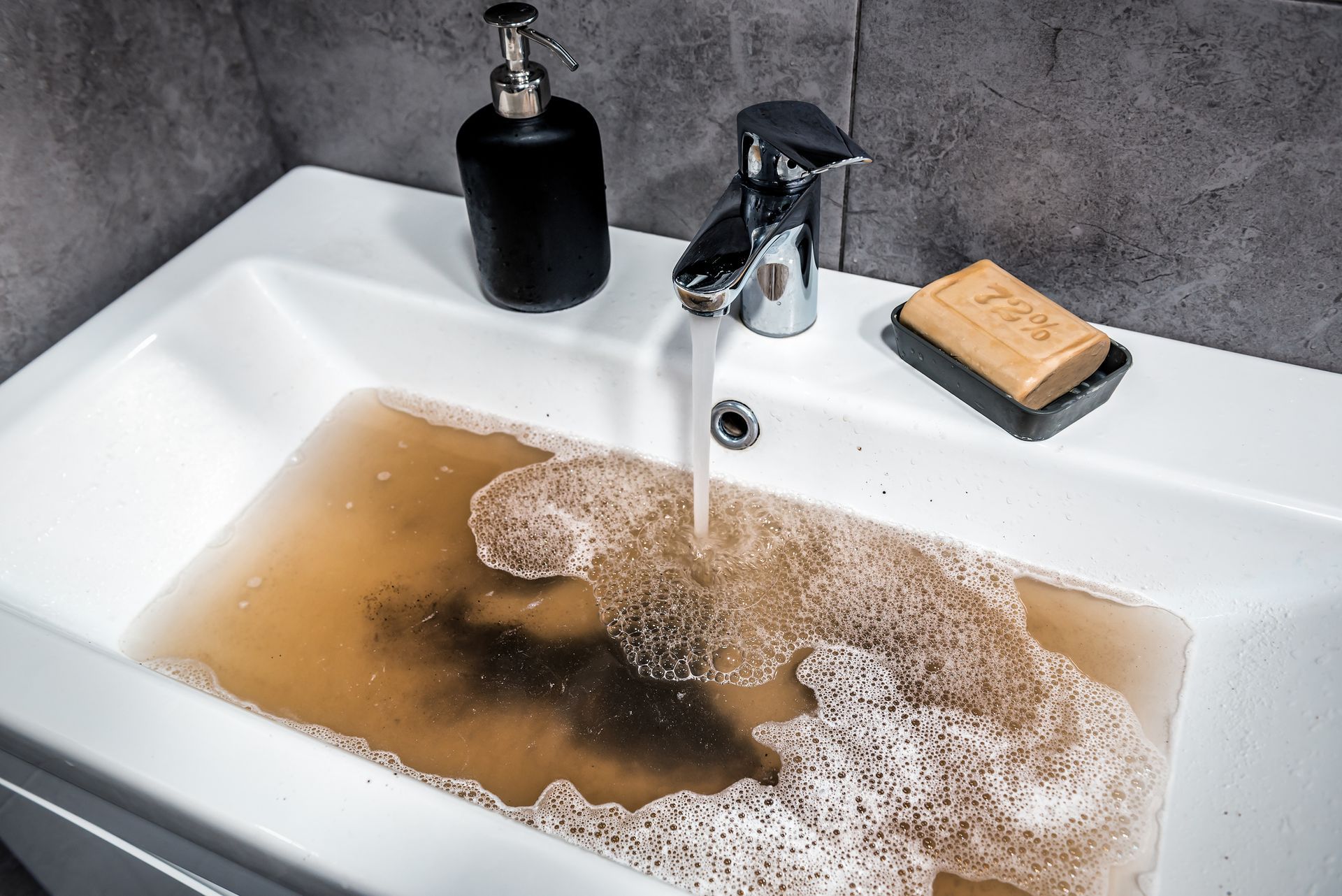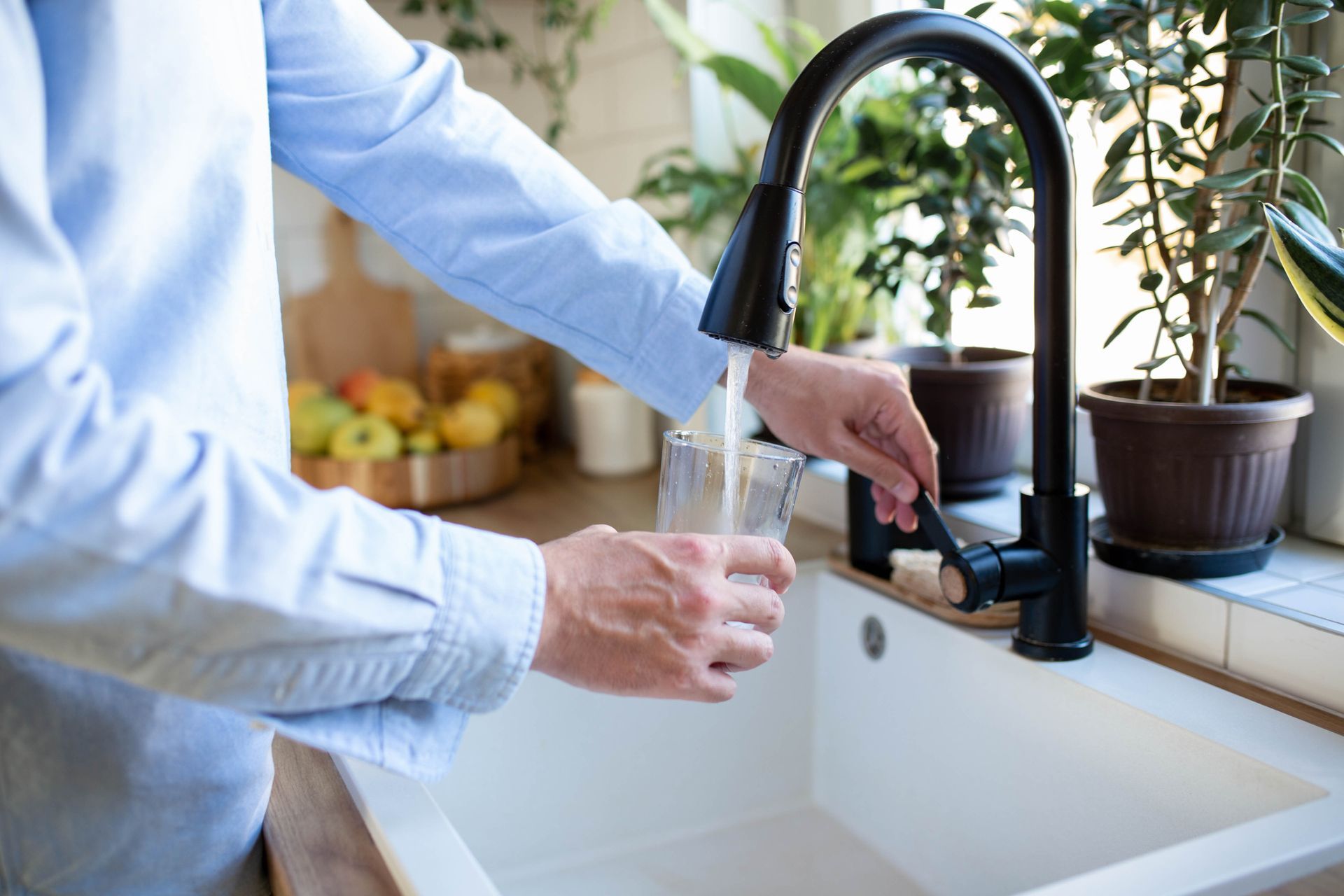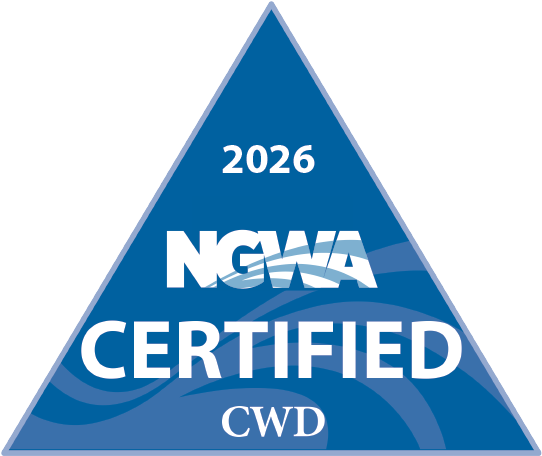Why Does Your Water Smell Like Chlorine? Expert Solutions from New Hampshire & Vermont Well Specialists
That distinct bleach-like odor wafting from your tap water can be concerning, especially when you're trying to determine whether it indicates a serious problem or simply effective water treatment. If your drinking water smells like chlorine, you're not alone—this common issue affects countless homeowners throughout New Hampshire and Vermont, whether they rely on municipal water systems or private wells.
Understanding why your water supply develops a chlorine smell and knowing when to take action can protect both your family's health and your home's plumbing infrastructure. While some chlorine odor in drinking water is perfectly normal and even beneficial, excessive concentrations or unusual smells can signal underlying issues that require professional attention. Let's explore what causes these odors and how you can address them effectively.
Understanding Chlorine Odor in Your Water Supply
The chlorine smell in your tap water typically originates from the intentional addition of chlorine or chloramines during municipal water treatment processes. This disinfectant serves a crucial purpose: eliminating harmful bacteria, viruses, and parasites that could otherwise cause serious waterborne diseases. The Environmental Protection Agency mandates that public water systems maintain safe residual chlorine levels to protect consumers throughout the distribution network, ensuring the water remains safe from the treatment plant all the way to your home.
Normal chlorine levels in drinking water range from 0.2 to 2 mg/L at your tap, well below the EPA's maximum residual disinfectant level of 4 mg/L. At these concentrations, a faint chlorine taste or smell is not only safe but indicates that your water service is effectively protecting you from contamination. Think of it as a sign that your water is being properly treated and safeguarded against potential health threats that could arise from untreated water sources.
However, when chlorine odor becomes overwhelming or your water smells significantly stronger than usual, it may signal too much chlorine or other water quality issues requiring investigation. Chlorine reacts with organic matter and minerals naturally present in water, creating compounds that can intensify the bleach smell. Iron, sulfur, and other volatile organic compounds common in New Hampshire and Vermont groundwater can amplify chlorine odors, making even normal disinfection levels more noticeable to your senses.
Professional water system evaluation becomes necessary when chlorine smell appears suddenly in previously odor-free wells, persists despite flushing, or accompanies changes in water pressure, taste, or appearance. These symptoms often indicate contamination events, equipment failures, or treatment system malfunctions that require immediate attention from licensed plumbers or water quality specialists. Don't ignore sudden changes in your water's smell—they're often the first warning sign of a problem that needs addressing.
Common Causes of Chlorine Smell in New Hampshire and Vermont Water
Municipal water treatment plants throughout our region adjust chlorine levels seasonally to combat increased microbial activity during warmer months. Summer chlorination increases help prevent algal blooms and bacterial growth in reservoirs and distribution systems, which can result in stronger chlorine odors reaching your taps. These treatment plants must balance effective disinfection with aesthetic acceptability, often responding to customer feedback about taste and odor concerns while maintaining the primary goal of delivering safe drinking water to the community.
Distance from treatment facilities significantly affects chlorine concentration in your drinking water. Homes located far from water treatment plants often receive higher initial chlorine doses to ensure adequate disinfection throughout extended distribution networks. This means rural properties and those at the "end of the line" frequently experience stronger chlorine smells than properties closer to treatment facilities. The longer the journey your water takes through pipes, the more chlorine is needed to maintain safe levels by the time it reaches your tap.
Private well water systems may develop chlorine odors following shock chlorination treatments designed to eliminate bacterial contamination. When laboratory testing reveals harmful bacteria in wells, licensed professionals perform controlled chlorination procedures that temporarily introduce concentrated bleach solutions to disinfect the entire system. This essential well maintenance method can leave residual chlorine taste and smell for several days or even weeks after treatment, gradually diminishing as you use your water and flush the system.
The interaction between chlorine and naturally occurring minerals like sulfur, iron, and manganese creates complex chemical reactions that intensify odors. New Hampshire and Vermont groundwater often contains elevated levels of these minerals, which can combine with chlorine to produce unexpected smells ranging from bleach-like to metallic. Hard water areas particularly experience these interactions, as mineral content affects how chlorine behaves in your plumbing fixtures and throughout your home's water supply, sometimes creating odors that seem disproportionate to the actual chlorine levels present.
Municipal vs. Private Well Water Chlorine Issues
Municipal water systems rely on chlorine as their primary defense against waterborne pathogens, treating millions of gallons daily to protect entire communities from disease outbreaks. These public water systems follow strict regulatory standards, continuously monitoring chlorine levels to maintain the delicate balance between effective disinfection and consumer acceptance. Seasonal adjustments, system maintenance, and emergency responses can all influence the chlorine smell residents experience from their municipal water service, with variations that are carefully controlled but still noticeable to sensitive users.
Private well chlorination serves a different purpose, typically addressing specific bacterial contamination events rather than providing ongoing disinfection. When wells test positive for coliform bacteria or other harmful microorganisms, shock chlorination becomes necessary to restore safe drinking water conditions. This process involves introducing concentrated chlorine solutions throughout the well system, including the well casing, pump, and connected plumbing, creating a temporary but intense exposure that eliminates the contamination.
Chlorine smell intensity varies dramatically between municipal and private water sources. Municipal systems aim for consistent, low-level chlorine residuals that provide protection without overwhelming taste or odor. Well owners may experience much stronger smells immediately following shock treatments, gradually diminishing as the system flushes and chlorine dissipates through normal use. Understanding this difference helps homeowners set appropriate expectations and know when chlorine levels should concern them.
Regulatory standards for chlorine levels differ between public and private water supplies as well. While municipal systems must comply with EPA guidelines for maximum residual disinfectant levels, private well owners bear responsibility for testing and treating their own water. This distinction means well owners may encounter higher temporary chlorine concentrations during treatment procedures, requiring careful monitoring to ensure levels return to safe ranges after disinfection is complete.

Health and Safety Considerations
The Environmental Protection Agency establishes clear guidelines for safe chlorine levels in drinking water, setting the maximum residual disinfectant level at 4 mg/L to protect public health while allowing effective disinfection. At concentrations below this threshold, chlorine smell typically indicates proper water treatment rather than health risks. The vast majority of chlorine odors you'll encounter fall well within safe limits, representing protection rather than danger to your family's health.
Safe chlorine concentrations rarely cause health problems for most individuals, even when taste and smell are noticeable. The disinfection benefits of properly chlorinated water far outweigh the minor aesthetic concerns associated with chlorine taste or odor. However, some people may experience sensitivity to chlorine, particularly those with respiratory conditions, sensitive skin, or compromised immune systems who might benefit from additional water treatment to reduce their exposure.
Long-term exposure to excessive chlorine can potentially cause health problems including skin and eye irritation, respiratory issues, and gastrointestinal distress. More concerning are the disinfection byproducts formed when chlorine reacts with organic materials in water, creating compounds like trihalomethanes and haloacetic acids. These chemical byproducts face strict regulatory limits due to potential health risks associated with extended consumption, making professional testing important for households with concerns about long-term exposure.
Small amounts of chlorine in drinking water remain perfectly safe for daily consumption, cooking, and other household uses. The key lies in distinguishing between normal disinfection levels and potentially problematic concentrations. When chlorine smell becomes overwhelming, persists despite extended flushing, or appears suddenly in previously odor-free water, professional evaluation helps determine whether health risks exist and what steps you should take to protect your family.
Professional Water Testing and Analysis Services
Comprehensive water quality testing provides the foundation for understanding chlorine levels and their relationship to overall water safety in your home's water supply. Professional laboratories analyze multiple parameters simultaneously, measuring not only chlorine concentration but also bacterial contamination, mineral content, pH levels, and potential disinfection byproducts. This holistic approach ensures that chlorine treatment decisions address underlying water quality issues rather than simply masking symptoms with filtration or other band-aid solutions.
Bacterial contamination testing becomes crucial for private wells experiencing chlorine odors, as these smells often follow disinfection treatments aimed at eliminating harmful microorganisms. Licensed water testing professionals collect samples using sterile techniques, ensuring accurate results that guide appropriate treatment decisions. Coliform bacteria testing, in particular, helps determine whether chlorination successfully eliminated contamination or whether additional treatment measures are necessary to protect your family's health.
Laboratory analysis of disinfection byproducts provides essential health information for households consuming chlorinated water over extended periods. Professional testing identifies trihalomethanes, haloacetic acids, and other compounds formed when chlorine reacts with organic matter in your water supply. Understanding byproduct levels helps homeowners make informed decisions about additional treatment systems or alternative disinfection methods that might better suit their specific water quality situation.
Professional recommendations based on test results consider local water conditions, household needs, and regulatory requirements specific to New Hampshire and Vermont. Experienced water quality specialists understand regional groundwater characteristics, common contamination sources, and effective treatment approaches for local conditions. Their expertise ensures that solutions address root causes of chlorine odors while maintaining safe, high-quality drinking water throughout your home for years to come.
Water Treatment Solutions for Chlorine Odor Removal
Whole-house water conditioning systems offer comprehensive chlorine reduction throughout your entire home, protecting plumbing fixtures, appliances, and every tap from chlorine damage and unwanted odors. These systems treat all incoming water before it enters your distribution network, ensuring consistent water quality for drinking, cooking, bathing, and household cleaning. Professional installation integrates conditioning equipment with existing plumbing and well systems, maintaining proper water pressure while removing chlorine and improving overall water quality from every faucet in your home.
Carbon filtration systems specifically designed for chlorine removal provide highly effective treatment at various scales, from whole-house applications to point-of-use devices. Activated carbon attracts and traps chlorine molecules through a process called adsorption, eliminating both taste and odor while preserving beneficial minerals in your water supply. These treatment devices require regular maintenance and filter replacement to maintain effectiveness, but offer cost-effective chlorine removal for most residential applications, making them one of the most popular solutions for homeowners dealing with chlorine odors.
Reverse osmosis systems deliver comprehensive contaminant reduction, removing chlorine along with dissolved solids, heavy metals, and potential pathogens from your drinking water. While typically installed at kitchen sinks for drinking and cooking water, reverse osmosis technology can treat larger volumes when household needs justify the investment. These systems produce exceptionally pure water but require more intensive maintenance and generate some wastewater during the filtration process, making them better suited for point-of-use applications rather than whole-house treatment in most residential settings.
UV disinfection provides an alternative to chemical chlorination for private wells, using ultraviolet light to eliminate bacteria and viruses without introducing chemicals that create taste or odor. When bacterial contamination necessitates ongoing disinfection, UV systems offer effective protection without the chlorine smell associated with chemical treatment. These systems require electrical power and periodic lamp replacement but eliminate concerns about chemical residuals in your fresh water supply, making them an excellent choice for homeowners seeking chemical-free water treatment solutions.

Wragg Brothers' Comprehensive Approach to Water Quality Issues
Over 65 years of experience addressing water quality concerns throughout Vermont, New Hampshire, and Massachusetts has provided Wragg Brothers with unparalleled expertise in diagnosing and resolving chlorine odor issues. Our team understands the unique geological and environmental factors affecting water quality in our region, from iron-rich groundwater to seasonal algae blooms that influence municipal treatment practices. This extensive experience enables us to quickly identify the source of chlorine smells and recommend appropriate solutions tailored to the specific conditions found in your local area.
Site assessment and water testing form the foundation of our approach to chlorine odor problems, ensuring that solutions address underlying causes rather than simply treating symptoms. Our certified technicians conduct comprehensive evaluations of your well system, plumbing infrastructure, and water quality to identify all factors contributing to chlorine smells. Professional testing includes bacterial analysis, mineral content evaluation, and chlorine level measurement, providing the complete picture necessary for effective treatment planning that addresses your unique water quality challenges.
Custom treatment solutions based on individual well and water system needs ensure that every installation addresses your specific water quality challenges effectively and economically. Rather than recommending one-size-fits-all solutions, our specialists design treatment systems that account for your water usage patterns, contamination sources, and aesthetic preferences. This personalized approach maximizes treatment effectiveness while minimizing ongoing maintenance requirements and operating costs, ensuring you get the best possible value from your water treatment investment.
Professional installation and ongoing maintenance of water treatment systems guarantee long-term performance and reliability for your chlorine removal and water conditioning equipment. Our certified installers ensure proper integration with existing wells, pumps, and plumbing while establishing maintenance schedules that preserve optimal performance. Ongoing service support includes filter replacements, system monitoring, and emergency repairs that keep your water treatment systems operating effectively year-round, giving you peace of mind about your water quality.
Take Action for Better Water Quality
Whether you're dealing with municipal water that smells like chlorine due to seasonal treatment variations or well water requiring shock chlorination to eliminate bacterial contamination, Wragg Brothers provides the expertise and equipment necessary to restore clean, odor-free water throughout your home. Our comprehensive approach addresses both immediate concerns and long-term water quality goals, ensuring that your family enjoys safe, pleasant-tasting water from every tap.
Contact Wragg Brothers today for professional water testing and customized treatment solutions that eliminate chlorine odors while maintaining the safety and quality of your home's water supply. Our experienced team is ready to help you understand your water quality challenges and implement effective solutions that provide lasting results for your New Hampshire or Vermont property. Don't let chlorine odors compromise your family's comfort—reach out to the water quality experts who have been serving our region for over six decades.




